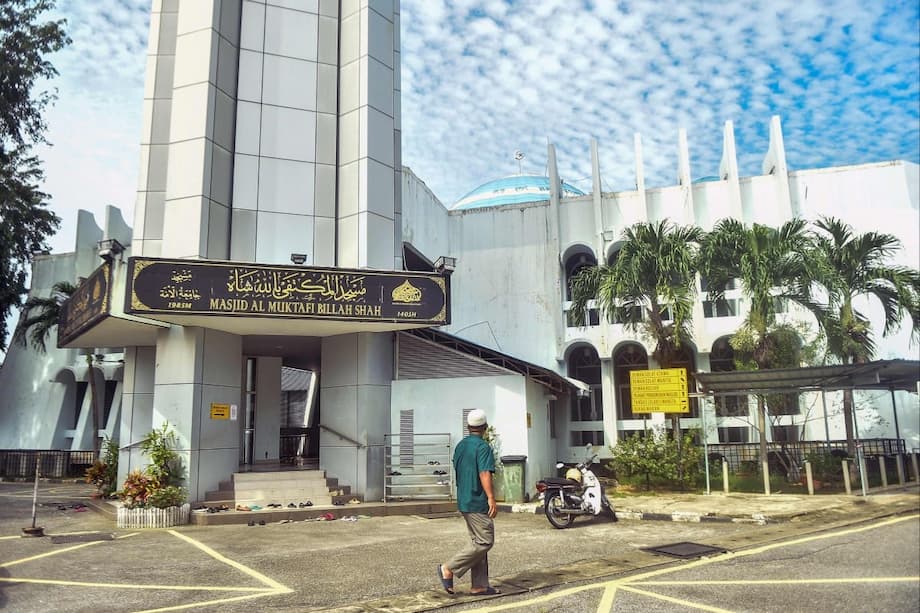Terengganu’s New Enforcement: Jail for Missing Friday Prayers
In a move that has sparked national and international debate, Malaysia’s Terengganu state has announced it will fully enforce a sharia law allowing for the imprisonment of Muslim men who skip Friday prayers without a valid reason. The law, which can see offenders jailed for up to two years, fined up to 3,000 ringgit (about US$710), or both, is being hailed by state authorities as a necessary step to preserve Islamic values. However, critics warn it is emblematic of a broader shift towards religious conservatism in Malaysia’s governance and society.
The announcement, made by Muhammad Khalil Abdul Hadi, a member of Terengganu’s executive council overseeing information, preaching, and sharia empowerment, marks a significant tightening of religious enforcement in the state. Previously, only those who missed three consecutive Friday prayers were subject to penalties. Now, even a single absence without a legitimate excuse can lead to prosecution.
What Does the Law Say?
The law in question falls under the Shariah Criminal Offences (Takzir) Enactment 2016, which was amended to increase penalties for missing Friday prayers. While the provision has existed since 2001, it was strengthened in 2016 and is now being strictly enforced. The law stipulates that Muslim men who fail to attend the weekly congregational Jummah prayer without a valid reason can be fined, jailed, or both. The state government has launched a public awareness campaign, including banners at mosques, to remind worshippers of their obligations and the consequences of neglecting them.
According to Khalil Abdul Hadi,
This reminder is important because Friday prayers are not only a religious symbol but also an expression of obedience among Muslims.
He emphasized that punishment would only be imposed as a last resort if reminders are ignored.
Why Friday Prayers Matter in Islam
Friday prayers, or Jummah, hold a central place in Islamic practice. For Muslim men, attending the congregational prayer at a mosque every Friday is considered a religious obligation. The Quran and Hadith (sayings of the Prophet Muhammad) stress the importance of this weekly gathering, which serves both spiritual and communal functions. In Malaysia, where Islam is the official religion and about 60% of the population are ethnic Malay Muslims, Friday prayers are a key marker of religious identity and social cohesion.
Religious authorities argue that strict enforcement is necessary to maintain the sanctity of Islam, especially among the younger generation who may be tempted to neglect their religious duties. The move is also seen as a way to reinforce the authority of religious institutions and the state’s commitment to upholding Islamic law.
How Is the Law Enforced?
Enforcement of the Friday prayer law in Terengganu is carried out by the Terengganu Islamic Affairs Department, often in collaboration with local authorities. Action can be taken based on public reports or through patrols and joint operations. In some cases, officers have conducted raids at recreational areas during Friday prayer times to catch those skipping prayers.
A notable example occurred in August 2019, when six Muslim men, including three teenagers, were sentenced to a month in jail and fined over RM2,000 each for skipping Friday prayers and instead picnicking at a waterfall. Female officers first conducted surveillance, and male officers made arrests after prayers ended. The case, which was widely reported, highlighted the seriousness with which the state views the offence and the willingness of authorities to prosecute offenders.
Institutional Support for Friday Prayers
Terengganu’s commitment to enforcing Friday prayers extends beyond individual punishment. In 2014, the state government ordered all shopping malls to close for two hours every Friday during prayer time, aiming to prevent Muslims from loitering instead of attending prayers. Local authorities are empowered to issue summonses to businesses that fail to comply, and enforcement officers are stationed at malls to ensure adherence. This institutional support underscores the centrality of Friday prayers in the state’s public life.
Comparisons with Other Malaysian States
While Terengganu is at the forefront of strict religious enforcement, it is not alone. Other conservative states such as Kelantan and Kedah have similar laws, though enforcement practices vary. In Kelantan, for example, missing three consecutive Friday prayers can also result in fines or jail time. However, in more urbanized states like Kuala Lumpur and Selangor, such laws exist but are rarely enforced, even in rural areas. This disparity reflects Malaysia’s complex legal landscape, where states have significant autonomy over Islamic matters.
Johor, another Malaysian state, has also taken steps to ensure Muslim men attend Friday prayers. Following a change in the official weekend to Saturday and Sunday, the state’s Islamic Religious Department announced it would carry out enforcement to make sure all Muslim men, including business owners and workers, perform their religious obligation. Schools with large Muslim populations are being allowed to hold Friday prayers on their premises to facilitate compliance.
Broader Context: Sharia Law and Conservatism in Malaysia
Malaysia operates a dual legal system: civil law for all citizens and sharia law for Muslims in matters of personal and family law. The constitution enshrines Islam as the official religion but also guarantees freedom of religion. However, the scope of sharia law has expanded in recent years, especially in states governed by the Pan-Malaysian Islamic Party (PAS), such as Terengganu and Kelantan.
PAS, which holds all 32 seats in Terengganu’s legislative assembly, has used its political dominance to push for stricter religious laws. The party’s leaders argue that such measures are necessary to preserve Islamic values in a rapidly modernizing and pluralistic society. Critics, however, see these moves as part of a broader trend towards religious conservatism that threatens Malaysia’s secular foundations and multicultural harmony.
Public Caning and Other Punishments
The enforcement of Friday prayer laws is part of a wider pattern of strict sharia punishments in Terengganu. In recent years, the state has carried out public canings for offences such as khalwat (close proximity between unmarried individuals), marking a shift from private to public punishments. These actions have drawn criticism from human rights groups and progressive Islamic organizations, who argue that they violate human rights and risk normalizing violence.
The federal Minister of Religious Affairs has stated that such matters fall under state jurisdiction, limiting the central government’s ability to intervene. Political analysts suggest that the push for harsher punishments may also serve as a distraction from administrative shortcomings and as a means to consolidate political support ahead of national elections.
Public Reaction and Debate
The strict enforcement of Friday prayer laws has sparked debate within Malaysia and beyond. Supporters argue that the measures are necessary to uphold religious discipline and prevent moral decay. They point to the importance of Friday prayers in Islam and the need to educate the younger generation about their religious duties.
Opponents, including human rights advocates and some religious scholars, contend that criminalizing religious observance undermines personal faith and autonomy. They argue that such laws are excessive and risk alienating Muslims who may already feel marginalized. A representative from a rights group commented,
Failure to attend Friday prayers is a personal matter, and criminal punishment is excessive.
Critics also warn that the trend towards harsher punishments erodes Malaysia’s tradition of religious tolerance and could fuel social divisions.
International Perspective
The U.S. Department of State’s 2019 International Religious Freedom Report on Malaysia notes that while the constitution guarantees freedom of religion, the use of Islamic law in personal matters and the enforcement of religious obligations can create challenges for religious minorities and for Muslims who do not conform to official interpretations. The report highlights concerns about religious discrimination and the need to balance religious authority with individual rights.
Implications for Malaysia’s Future
The enforcement of Friday prayer laws in Terengganu is a microcosm of broader tensions in Malaysian society. On one hand, there is a desire among some segments of the population and political leadership to strengthen Islamic identity and values. On the other, there are concerns about the impact of religious conservatism on personal freedoms, social cohesion, and Malaysia’s reputation as a moderate Muslim-majority country.
With PAS consolidating its power in Terengganu and seeking to expand its influence nationally, the debate over religious enforcement is likely to intensify. The outcome will have significant implications not only for Muslims in Terengganu but for the future of religious governance and pluralism in Malaysia as a whole.
In Summary
- Terengganu has begun fully enforcing a law that allows for jail terms and fines for Muslim men who skip Friday prayers without a valid reason.
- The law is part of a broader trend towards stricter religious enforcement in PAS-governed states.
- Friday prayers are a central obligation in Islam, and the state has implemented public awareness campaigns and institutional measures to support compliance.
- Enforcement includes patrols, public reporting, and even raids at recreational sites during prayer times.
- Similar laws exist in other Malaysian states, but enforcement varies widely.
- The move has sparked debate about religious freedom, personal autonomy, and the direction of Malaysian society.
- Human rights groups and progressive Islamic organizations have criticized the criminalization of religious observance and the use of public punishments.
- The issue reflects deeper tensions between religious conservatism and Malaysia’s secular, pluralistic foundations.












